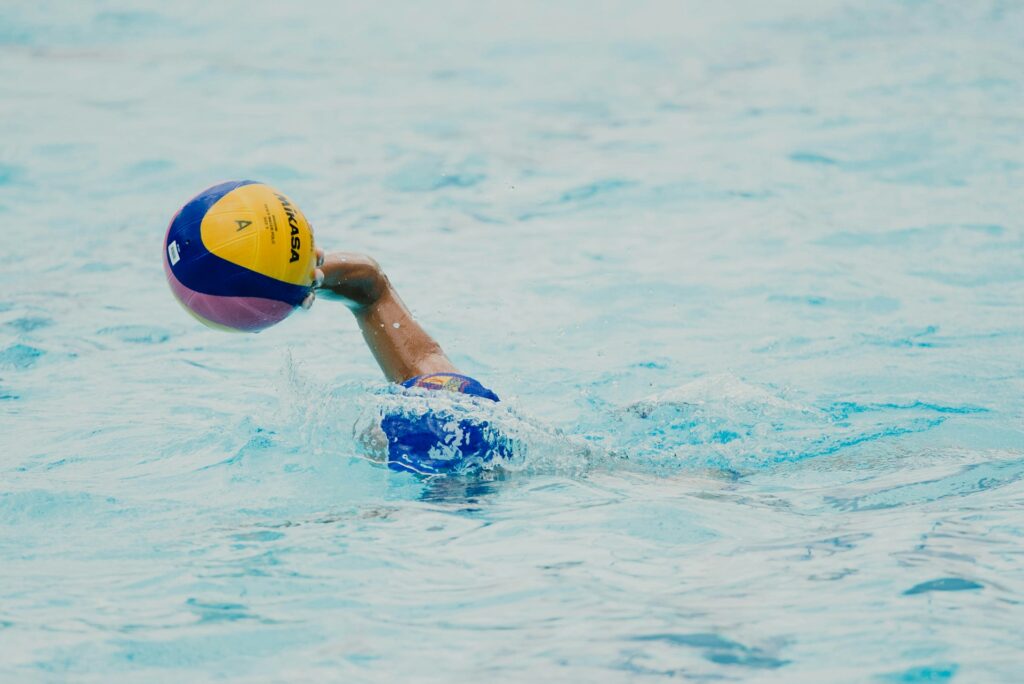Learn about Common Activities During Rec Swim. Discover fun and engaging common activities during rec swim. From Marco Polo to whirlpools, explore how families and individuals enjoy unstructured pool time together.
Formal instruction or practice in swimming differs from recreational swimming, more commonly referred to as “rec swim.” It offers an informal atmosphere where swimmers of every age and proficiency will not be barred from participating.
They differ from competitive swimming or teaching sessions in that they are mainly intended for leisure, relaxation, and fun in the water. Most of these sessions are scheduled by community pools, recreation centers, campuses, or health facilities.
Definition of Rec Swim
Rec swim is a type of time allocated in public or private swimming facilities where the swimming pool is open for general use by the public. No lessons or competitions will take place during this time. There are always opportunities for free swimming, splashing, lap swimming, using flotation devices, or casually practicing swimming strokes.
Rec swim is very unstructured, in that no program or instruction is mandated. This freedom and flexibility make rec swim perfect for relaxing, exercising, or spending some fun time with the family.
Common Activities During Rec Swim
1. Atomic Whirlpool
Swimmers swim or walk in a circle along the edge of the swimming pool, creating the circular whirlpool current. Then they swim but against it- an amusing yet engaging way of feeling resistance!
2. Bumper Balls
Using inflatable bumper balls or floaties- The participants bump into each other in the pool. A silly, energetic, and perfect thing for burning energy in giggling fun among friends.

3. Freeze Tag
A twist on good old-fashioned tag—instead of running away, once swimmers are tagged, they “freeze” until a fellow player unfreezes them. It fosters cooperation, light footwork, and lots of giggles in the water!
4. Invisible Bottles
A clear plastic bottle is tossed into the pool and becomes almost invisible underwater. Contestants must find it and retrieve it, since the only rule is that it is a simple, sneaky game that tests contestants’ focus and observation.
5. Marco Polo
The closed-eyed swimmer shouts “Mar,c,o” and everybody else responds with “Polo.” The tagger catches the others by sound only old and ever exciting test of hearing and stealth.
6. Octopus
There is a swimmer who is it and tags others who join the tagging team. The number of participants grows until the octopus becomes bigger and harder to dodge, but more fun every time.
7. Pool Games
These are traditional pool games, including catch, volleyball, and basketball, along with a floating ring toss, which demands coordination and teamwork. These can be easily adapted for students to get them engaged during rec swim time.
8. Sharks and Minnows
In a pool, the Player who is the shark tries to catch the other players who are minnows as they swim from one side to the other. Those who have been tagged become sharks as well, which makes for action, strategy, and really, a crowd favourite.
Who Can Participate in Rec Swim?
Rec swim is typically open to everyone, including:
- Children (often accompanied by a guardian)
- Teenagers and adults
- Seniors
- Families and groups
- Individuals with disabilities (many pools offer inclusive features)
Many facilities also offer designated family rec swim, adult-only rec swim, or inclusive rec swim for specific groups.
Key Features of Rec Swim
1. Unstructured Pool Access
Under recreational swim hours, the pool is generally open for free use. The swimmers can wander freely throughout the pool without lane-imposed restrictions and swim drills. This creates a friendly atmosphere for everyone involved.
2. Family-Friendly Environment
Rec swim almost always includes family swim times. Parents are invited to bring their children for safe water play, with lifeguards overseeing the area for added safety. Some pools even provide flotation devices, toys, or shallow play areas.
3. All Ages Welcome
Unlike formal competitive swim training or adult lap swimming, rec swim welcomes children, teens, adults, and seniors. Hence, recreational swimming is one casual endeavor from which everyone can benefit from the inclusive and casual nature.
Benefits of Rec Swim
1. Physical Health
Because swimming is also a low-impact exercise, it has little stress on the joints, while working at the same time on the cardiovascular system, strength, and flexibility. Swimming is for everyone, especially joint problems or during rehabilitation.
2. Mental Wellness
The mind calms down, soothes. Rec swimming serves as an exciting activity that takes you outside and relieves some stress while lowering anxiety levels and boosting overall mood.
3. Social Interaction
A pool is always a place of social interaction during recreational swim hours. Family time, children making new friends, and seniors chatting on the deck only serve to strengthen those social ties.
4. Skill Development
Not quite a lesson, but rec swim can be a venue for testing out swimming strokes, getting used to being in the water, and improving an understanding of water safety.
5. Fun and Recreation
Fun is, above everything, what rec swim is about. The sound of joyous splashing in the distance is the chorus of the melodic relaxation of the mind.
How Rec Swim Differs from Lap Swim
| Feature | Rec Swim | Lap Swim |
| Structure | Unstructured/freeform | Structured/straight-line laps |
| Purpose | Relaxation, fun, light exercise | Endurance, fitness training |
| Audience | All ages | Typically, adults and teens |
| Pool Setup | Open swimming areas | Designated lap lanes |
| Pace | Casual and flexible | Timed and consistent |
Safety Guidelines for Recreational Swimming
Supervision and Lifeguard Rules
Generally, they are present during rec swim to ensure there is safety for everyone involved. They would enforce rules, respond to emergencies, and provide help when no other options are available.
Pool Etiquette and Hygiene
- Shower before you enter a pool
- No running on the deck
- Most importantly, keep the pool clean: don’t bring in dirt or food
The simple rules that they have keep the water safe, and with enjoyment for everyone.
Gear and Floatation Devices
A lot of pools implement lifeguards, floaties, kitesurf boards, and other recreational swimming equipment, but typically only prohibit the use of oversized rafts, motorized toys, etc. You should always check your pool for restrictions.
Pool Access and Rec Swim Schedules
How to Find Local Rec Swim Times
Usually, the local community centers, YMCAs, and recreation departments have current weekly swim schedules published on their websites or social media pages. You may, however, also call or rely on mobile app updates for real-time alerts.
Fees and Membership Options
While public pools may offer access to rec swimming for free, entry to other venues may require a day pass or membership. In many places, residents pay lower rates than non-residents.

Common Rules During Rec Swim Hours
No Diving Zones
Shallows are usually tagged with a “no diving” sign for injury prevention; therefore, always check for signage or ask the lifeguard for confirmation.
Behavior Expectations
Horseplay, roughhousing, and excessive splashing are discouraged most of the time. Respect for others in the pool is key to a good time.
Food and Drink Policies
Food is generally not allowed in most indoor pools. Outdoor pools may have designated areas for snacks. Sealed water bottles are typically fine, but glass containers are expressly forbidden.
Rec Swim for Kids and Families
Benefits for Young Children
Swimming at a very young age develops confidence in the water and appreciation for some important skills later in life. Most often, pools have great fountains set up with gentle splashing zones, designed to draw little ones in.
Family Pool Activities
Family bonding will be at its best during the receiving swims. From play to practicing flotation skills to plain out fun in the water with family, all these things help strengthen relationships and build memories that will last forever.
Conclusion
Rec swim offers a fun and inclusive environment for all ages to enjoy water fun. Games, relaxation, and socializing promote physical activity and mental well-being. Whether swimming alone or with family, rec swimming is a break from routine and encourages community in doing so.
